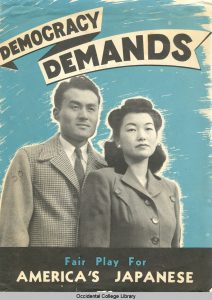
Japanese Internment was condemned by many major news sources
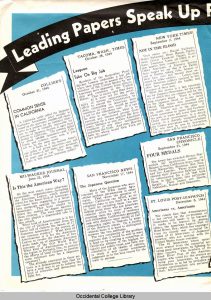
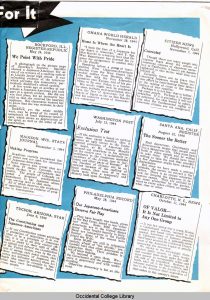
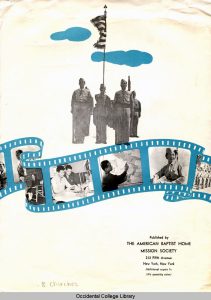
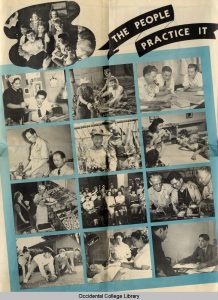
Created by the American Baptist Society in response to EO 9066, this pamphlet demanded that Japanese Americans be treated as equals on the grounds of their contribution the cultivation of democracy in America’s society and economy. World War Two was a battle against Fascism, Nazism, and the Holocaust – things that clearly did not align with American values. Japan’s assault on Pearl Harbor was the first direct attack on American soil in years, and significantly bolstered American citizen’s support for American involvement. As a result, there was very little incentive for an organized antiwar movement. America has a long history with institutional racism towards Asians, and Pearl Harbor, followed by American participation in World War Two brought these racial tensions to a
front. Executive Order 9066 authorized the Secretary of War to create military zones, paving the way for the internment of racial groups, especially Japanese Americans. This pamphlet is therefore a two-sided protest of war’s effect on the integrity of the United States and its so-called dedication to democratic values. Despite widespread support for participation in the war, and its contributions to ending the Great Depression, internment was profusely antidemocratic and raised concerns over the contradictory nature of securing democracy in Europe[1]. By bringing attention to the antidemocratic notions of Internment Camps, the creator’s message indirectly asked: why is the United States fighting for democracy abroad when it is imprisoning those who fight for it on its own soil? This source represents a common thread of antiwar dissent in that war protests bring attention to the fact that America has a history of talking the democratic talk, but not walking the democratic walk at home. Internment was a clear violation of the civil liberties that Japanese Americans had earned, calling into question the government’s value of protecting the liberties of its citizens.
[1] Shaffer, Robert. 1999. “Opposition to Internment: Defending Japanese American Rights During World War II.” Historian 61 (3): 597-618.
